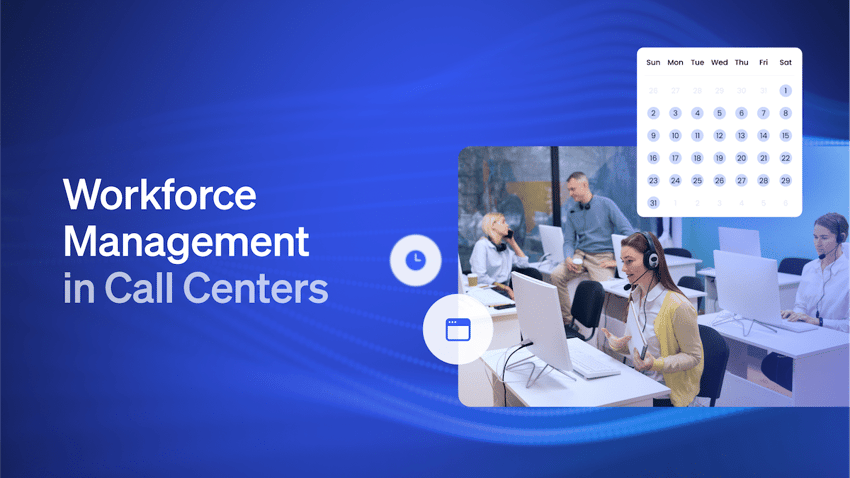Why are customer service skills essential? Well, if you run a contact center, continuous improvement of your customer service team must be high on your agenda. The better the service you provide, the longer you’ll keep customers, stand out as a brand, and grow your business from the inside.
To achieve ongoing improvement, you need to become familiar with the cross-section of customer service skills and understand the niche components of developing them.
We’ll dive into the nuts and bolts of customer service and provide the top 20 skills agents need to handle customer inquiries.
Why Is Customer Service Important?
Without quality customer service, you risk becoming known for substandard service. When customers have bad experiences, they’re more likely to seek an alternative provider. Those who do remain loyal become hesitant to buy other products, and your sales team must now work twice as hard to grow the business.
With quality customer service, you boost both customer retention and loyalty. Retaining customers leads to higher profits (e.g., a 5% increase in retention = a 25-95% profit boost) and less of a burden on your bottom line.
Likewise, satisfied customers will spend more with you — up to 140% in some cases.
You build long-term customer relationships and brand advocates when you focus on providing superior customer support. This unique blend differentiates your brand from the competition so it’s not just fancy social media telling the outside world how great you are. It’s also your customers referring you to peers and friends.
A side benefit of good customer care is that when your customers are happy, your call center agents will be happy, too. You create a cycle of delight, and satisfied and motivated employees are less likely to seek new jobs.
What is an example of good customer service?
We experience customer service examples every day in our personal lives — some good, some bad. The most memorable ones are bad, for example, spending ages on hold with your car insurance company when making a claim is one of the most stressful moments in your life.
What you actually need is an instant connection to the right department, swift access to your account, and an agent who appreciates the problem and does what they can to find a solution.
Is that too much to ask?
Good customer service can often go under the radar. And that’s kind of the whole point. Your customers should receive a frictionless customer service experience when they contact you.
This can include customer service automation, like self-service options, FAQs, and automatic call routing. Finding the right customer service representative to help should be seamless. When you get to that person, you want them to be empowered and skilled enough to help you. That’s often all you need.
Of course, there are examples of going above and beyond, too. Zappos, the online retailer, is famed for making its customers’ lives extremely easy when it comes to returns.
Instead of wading through queries and making a business case for ill-fitting shoes, customers get 365 days to complete a self-service return. If something goes wrong along the way, they can choose from the many contact methods (phone, chat, SMS) to get instant help from someone who knows all about the returns policy, the business, and the products.
What’s more, Zappos makes its contact details easy to find, so you don’t have to search its website for a phone number:
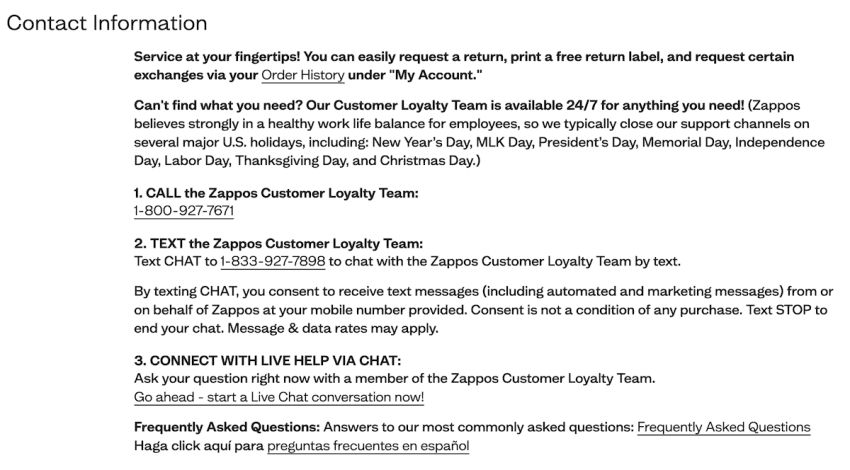
How to handle difficult customers
As part of your customer service strategy, it pays to have a routine workflow as well as a script and process for when things go wrong. These are also helpful when things are going fine but you encounter an irrational customer.
In such a case, your customer service reps can really flex their skills. By demonstrating soft skills like patience, active listening, and empathy, you give the customer time to let off steam, and then you can explain your understanding and the steps you’ll take to help them find a resolution.
By letting them know the process upfront, you set their expectations realistically. For example, if something will take 30 minutes to reset, you must be transparent about it rather than dressing it up as a quick fix. While it’s tempting to opt for the route where you delight customers immediately, honesty is always the best policy.
If there’s still pushback as you walk through the steps or explain the situation, it pays to have a documented escalation process. If the call is getting out of hand, escalating it to a supervisor or manager can be enough to calm even the most irate customer. Sometimes, it’s the attention they crave, not the fix.
How to improve your customer service skills
Start by evaluating your brand’s customer journey and finding out where and if there are any skill gaps. You can use Nextiva’s contact center analytics alongside customer satisfaction surveys to identify customers with negative sentiment.
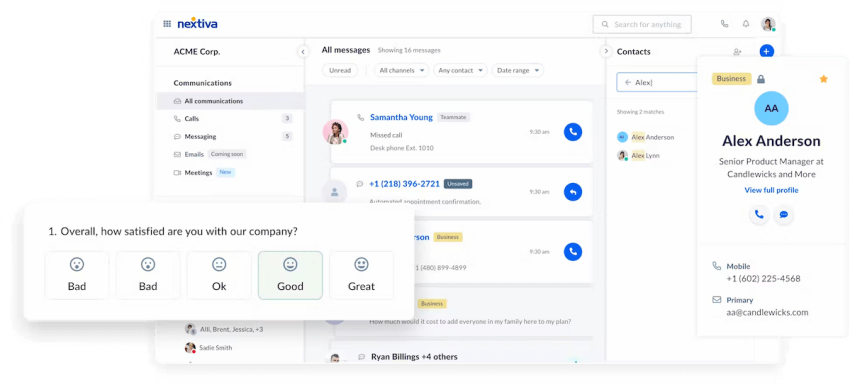
Earmark the “bad” calls and transactions for manual review. From here, you can work out what skills are lacking and what training programs you need to develop.
In the below guide, we include associated customer service tips to help customer service agents become more accustomed to handling difficult situations and providing great customer service.
20 Excellent Customer Service Skills to Work On
You can use these as your headline skill sets when creating a training and skills matrix later on. We also include how you can take good customer service skills and turn them into great ones.
Communication skills
1. Writing skills
Clear communication reduces misunderstandings. In omnichannel customer service software, agents may handle web chats, emails, and social media, so it’s vital that they don’t cut corners or present themselves unprofessionally.
Your customers’ experiences via written communication methods must reflect the rest of your brand online, via mail, or in adverts.
How to develop: Create and circulate templates for customer service professionals to fill out. This provides a company-wide structure that customers become used to. Provide feedback on select customer interactions where customers may have flagged negative or positive customer experiences.
2. Active listening and attentiveness
When you turn just sitting at the other end of a phone into active listening, you ensure that customers feel heard and understood. By using affirmative noises (hmms, ahhs, agreements, etc.) and repeating the customer’s problem, you reassure them that you’re the person who can help. Practice making notes for complex issues, and ask questions when something is unclear rather than guessing later.
How to develop: Make agents aware of the difference between listening and active listening. Once understood, introduce role-play scenarios to ensure they have the skills to start handling calls.
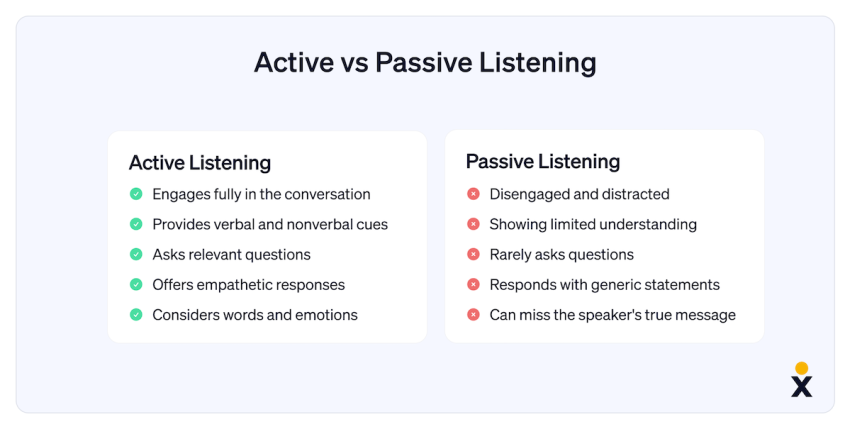
3. Professional language
As with written communications, it’s essential that the spoken language used maintains respect and aligns with your brand voice. Customers should have the same experience regardless of the agent or department they’re dealing with.
How to develop: Provide guidelines and scripts for routine scenarios. Reinforce standards, and start training if calls get flagged for lack of adherence.

4. Ability to use positive language
If you can frame responses to emphasize solutions, your customers will be grateful for your honesty — but only if you do so in a positive manner. When you can turn negative situations into potential positive outcomes, conversations become friendlier and geared toward a remedy instead of dwelling on the past.
How to develop: Practice turning negative scenarios into positive outcomes during role-play. Create phrase books with common problems and their potential solutions.
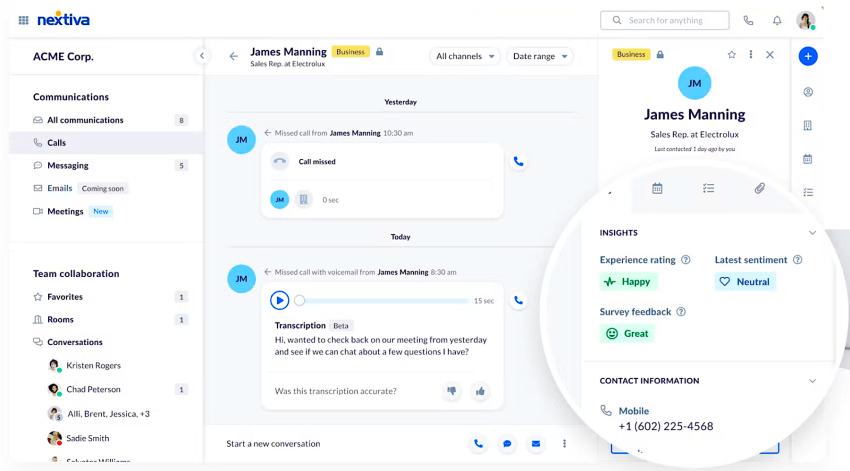
Problem-solving skills
5. Critical thinking
Critical thinking occurs when agents are able to remove themselves from the immediate solution, plan for the bigger picture, and analyze situations to identify the best solution.
It might be easy to ask a customer to reboot their laptop, which will buy you some time, but it’s more efficient to lay out all the steps, starting with the most common customer issues once you’ve checked for outages in their area.
How to develop: Encourage assessment before action. Move agents away from firefighting and toward genuine problem-solving.

6. Creativity and resourcefulness
Thinking outside the box is an excellent skill for agents to learn. If they can provide innovative solutions when standard procedures aren’t getting anywhere, customers won’t have to wait as long or lose confidence as you work through what feels like guesswork.
How to develop: Run regular brainstorming sessions with agents to see what’s working, find out where they need the most help, and reward them for coming up with fresh ideas.
7. Ability to handle unexpected situations
Some days it will feel like every call is the same.
“I need help with my router.”
“I have a question about my bill.”
But what about when someone calls with an issue that’s completely out of the blue? If your agents can maintain their composure, they’ll immediately be a step ahead.
How to develop: Train agents and supervisors on the practices of stress management. Identify calls with changes in tone of voice to see how they could have dealt with surprise situations better.
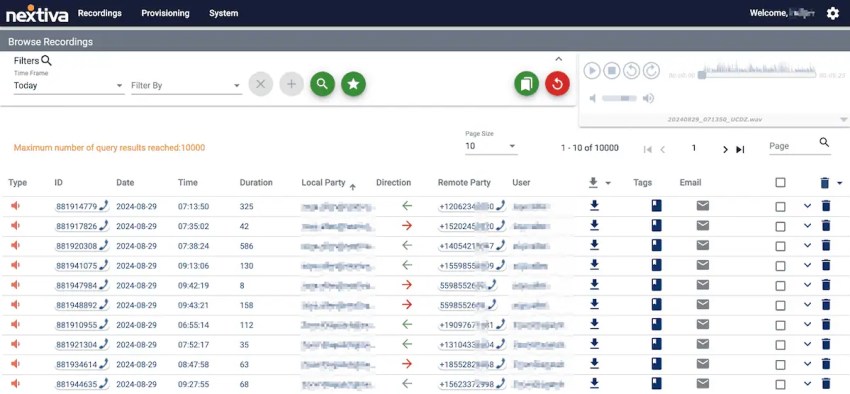
8. Resourcefulness
If your agents know what to use and when, they can solve problems quickly. By accessing a range of tools (CRM, document repository, etc.), you can become more efficient in problem resolution and provide better customer experiences.
How to develop: It’s hard to teach resourcefulness. It’s one of those traits that a person either has or doesn’t have. Instead, create a resource library. This can make agents’ lives easier because they don’t have to do manual searches or ask colleagues what they need and where they might find it.
Emotional intelligence skills
9. Patience and self-control
When you rush customers, you might think you’re speeding up the interaction. In reality, you’re creating unnecessary panic, losing any faith you’ve built, and deprioritizing customer needs. Instead, prioritize providing customers with the time they need to fully explain their issue and any steps they’ve already taken.
How to develop: Teach stress management techniques, and role-play frustrating customer scenarios. Remember, practice makes perfect.
10. Empathy
If you can connect with customers on a personal level, you’re more likely to deliver the experience they crave. Skipping over the emotional element of a customer call means you miss out on customer feel. Your responses can then be compromised as you think you’ve completed a simple task when the caller was under extreme pressure.
How to develop: Role-play in-person empathy with real-life examples. Relate back to personal experiences when agents themselves have been customers and needed an urgent matter resolved.
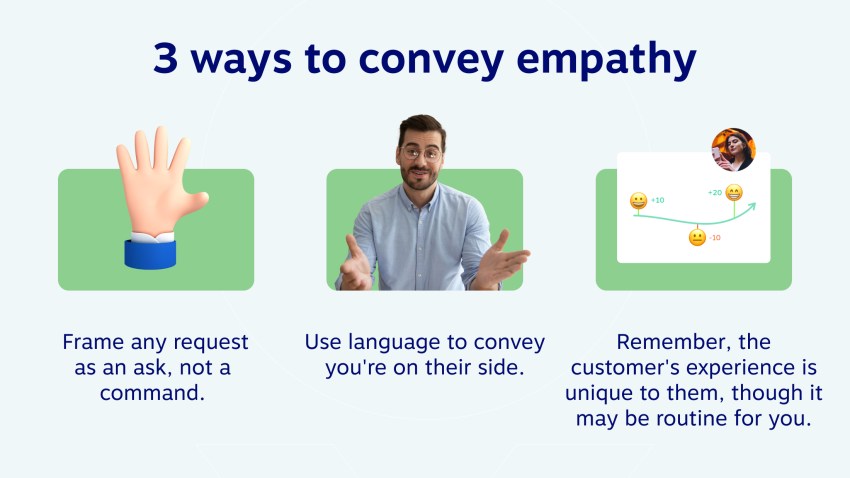
11. Ability to read customers
If you can pick up on both verbal and nonverbal cues, you can uncover hidden problems that customers don’t realize are problems or are bad at making clear. Emergency 911 operators are highly skilled at spotting things that aren’t said but need careful or urgent attention.
How to develop: Train agents on body language and tone of voice. Consider using external resources or a specialist agency if you have sensitive customers.

12. Adaptability
If you can adjust to new information at a moment’s notice, you open the door to calmness and responsiveness from your customers. Adaptability can stem from training across products and departments and simply dedicating enough time to each interaction.
How to develop: Rotate roles from time to time. Encourage flexibility and peer observation. The more you know, the more you can adapt.
Personal qualities
13. Time management
When agents can balance new customer questions with existing tasks, they add to a productive environment. Knowing how long a task is likely to take versus the time they have before they are available in a queue is a quality asset. The same criteria apply to basic actions like arriving a little early to beat the traffic and returning from lunch on time.
How to develop: Provide tools for prioritizing tasks with a clean interface conducive to efficiency. Lean on workforce scheduling solutions for optimal agent utilization.

14. Tenacity
If you have the determination to solve challenging problems, you’ll go far in a contact center. Sometimes, it can be a real slog to get to the resolution. But when you reach the remedy, it’s worth it for both you and your customer.
How to develop: Celebrate persistence and recognize the efforts of agents who’ve gone the extra mile and battled it out for customers. Use gamification to showcase how well agents are performing versus cherry-picking easy tasks.
15. Goal-oriented focus
When agents work with clear objectives in mind, they’re more likely to reach a resolution that creates high customer satisfaction. What’s more, the chance of first call resolution without follow-up will be significantly higher.
How to develop: Set clear goals and expected outcomes for specific customer queries. Review the progress of agent performance on a regular basis to see who’s working toward a goal and who’s caught up in firefighting.
16. Willingness to learn
If you give agents a reason to empower themselves, they’ll become eager to adapt and grow in their role. When agents develop the willingness to learn, they adopt a positive mindset and reap the benefits of continuous education.
How to develop: Don’t just offer ongoing training. Recognize improvement as training progresses. Use rewards and certification programs to call out a job well done.

17. Positive attitude
When agents approach situations with optimism, customers feel at ease, and everyone can work as a team to find a resolution to the issue. The opposite — a negative attitude — lends itself to pushback and unease between agent and customer, delaying resolution and encouraging a poor customer experience.
How to develop: Curate a positive work environment that makes team members feel happy to be there. Listen to employee and customer feedback, and do what you can to reduce stress and eliminate agent burnout.

Other useful skills and qualities
18. Product knowledge
When agents have specific product know-how, it makes interactions with customers much easier. After all, if a customer has been using that product for five years, they probably know their way around it. If customers have to educate you, it isn’t conducive to solving the problem.
How to develop: Regular training on products is a must. Set aside time for agents to shadow sales and product teams to see how products get used by customers.
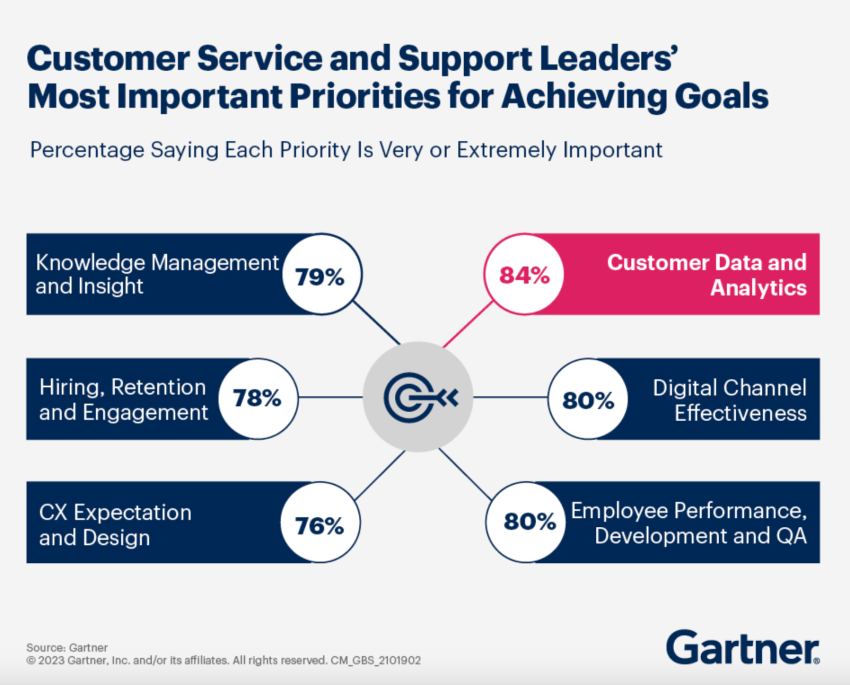
19. Technical knowledge
Use of products extends to the tools agents are using themselves. Check proficiency in using relevant tools and software on a regular basis. Use a skills matrix to track how well each agent can use the tools in your stack.
How to develop: Provide technical training and resources for all agents on a regular basis. Track progress in a skills matrix or similar.
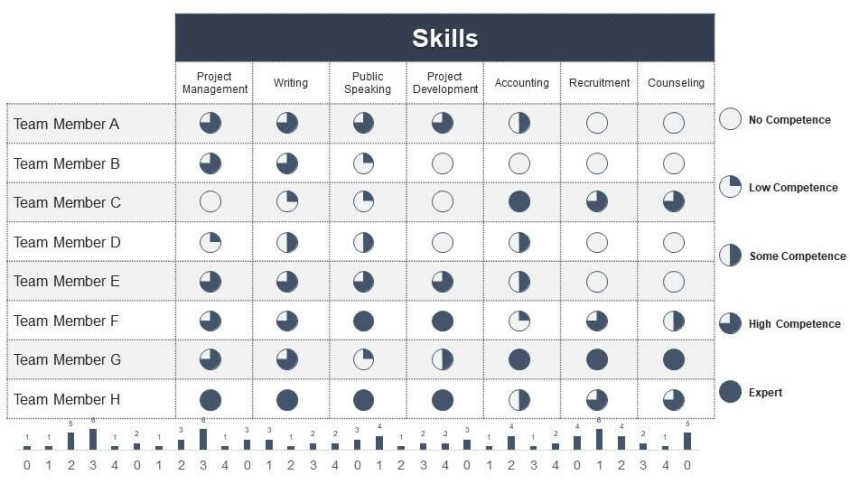
20. Ability to take responsibility
If an agent makes a mistake, being proactive, owning up, and rectifying the error saves everybody time, hassle, and embarrassment. When you can step back and say, “Yes, I’m sorry, and I’ve learned,” it’s more productive for all parties involved in the situation.
How to develop: Encourage accountability and provide support. Emphasize to agents that it’s okay to make mistakes (within reason) and that the best course of action is honesty.
New Leader’s Guide to CX Trends in 2025
Get the free 49-page detailed report packed with insights from 1,000+ CX leaders. We covered it all — AI, engagement channels, and ROI.

















 Customer Experience
Customer Experience 











